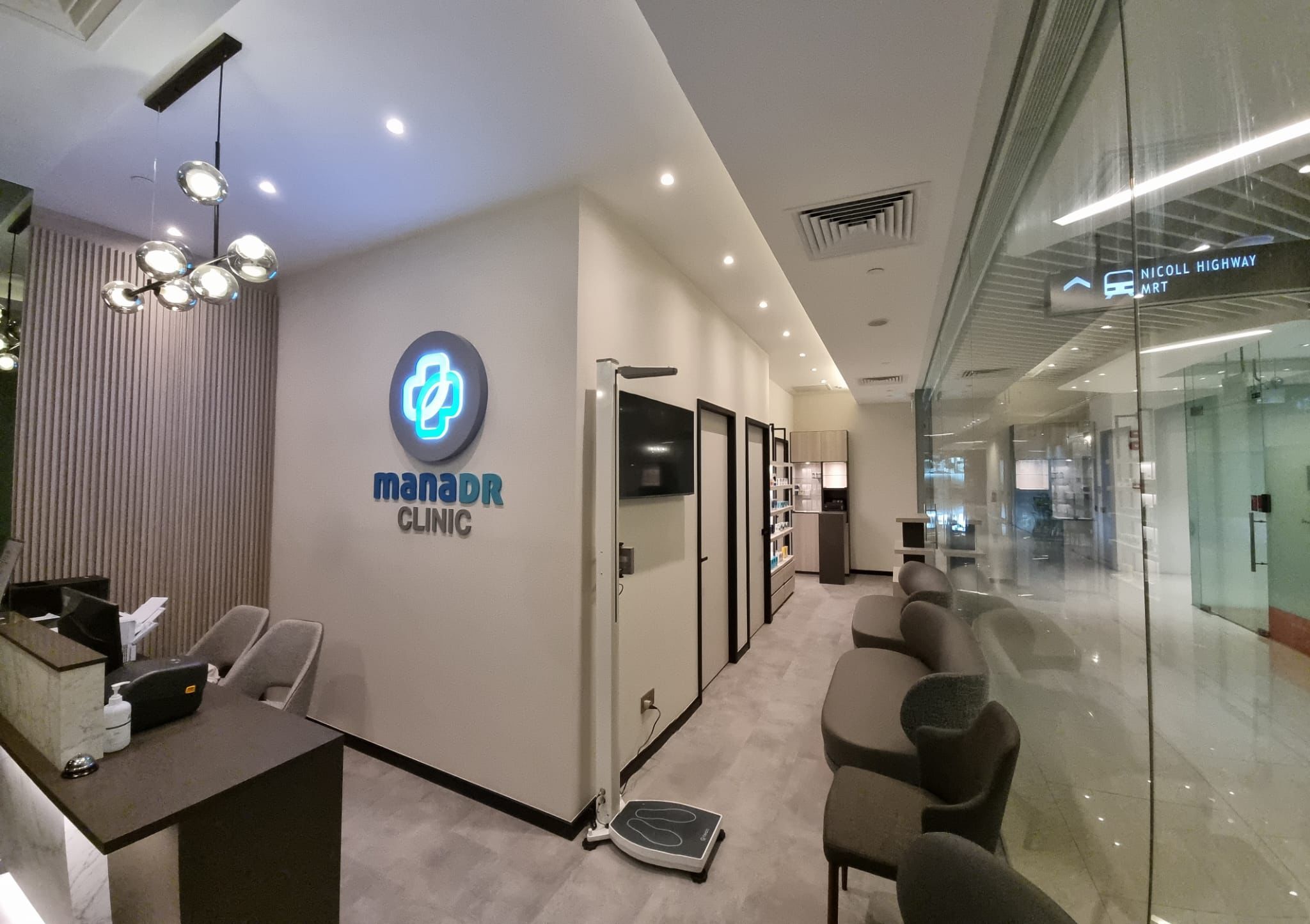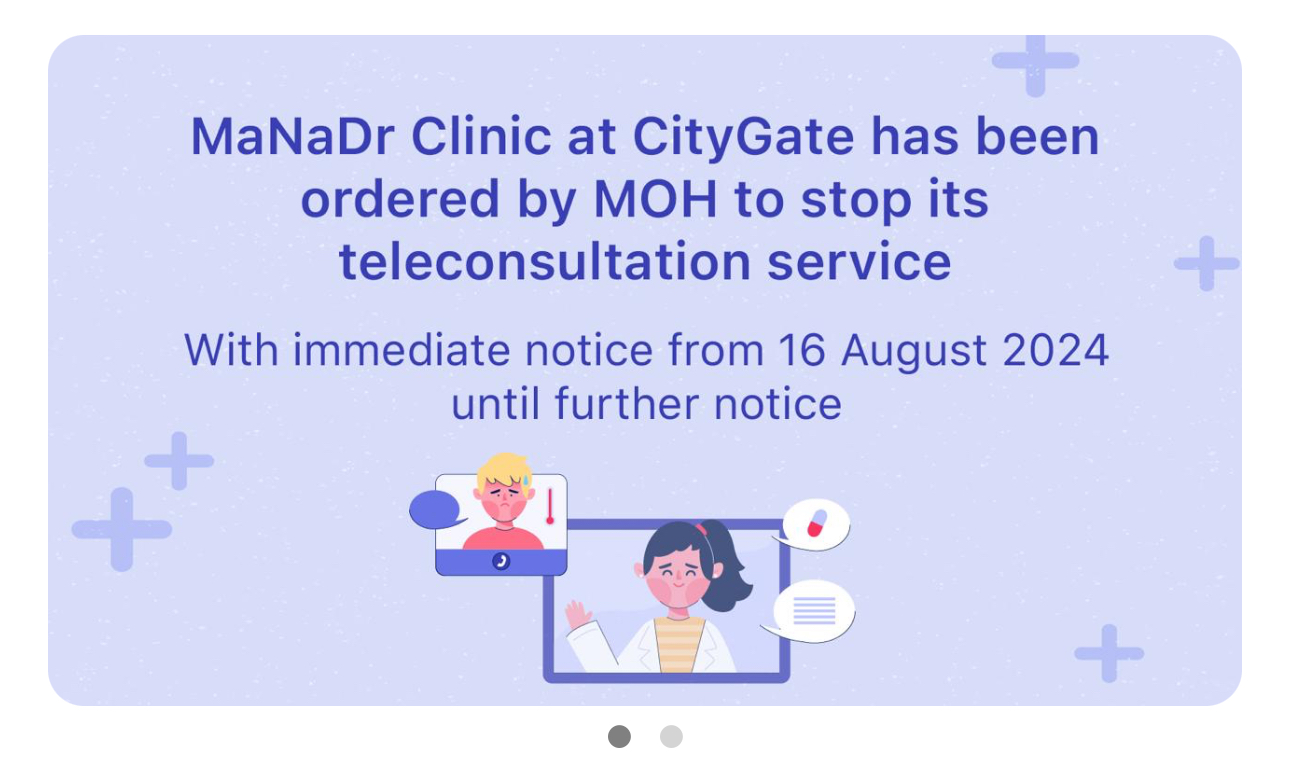If you’ve ever asked your friends for telemedicine recommendations, you’ve probably been told to use the telemedicine app “MaNaDr” at least once. If you’re a fan of MaNaDr, we have bad news for you — the MaNaDr clinic has been directed by the Ministry of Health (MOH) to suspend its outpatient telemedicine services.
And if you’re a frequent user of MaNaDr’s telemedicine services, you probably have an inkling of an idea why.
MaNaDr Clinic Suspended from Telemedicine for Suspected Clinically and Ethically Inappropriate Practices
On Friday (16 August), MaNaDr clinic, located at City Gate along Beach Road, was directed by MOH to suspend its outpatient telemedicine services until further notice.
The reason? MOH had received several complaints about MaNaDr’s services in the past months and decided to launch an investigation. The investigation revealed that the clinic was likely to have routinely engaged in clinically and ethically inappropriate practices.

For context, the MaNaDr clinic is licensed to provide three modes of outpatient medical services — at its permanent premises at Beach Road, any temporary premises, as well as remotely via telemedicine.
While the clinic’s outpatient telemedicine services have been suspended, the MaNaDr app, through which you may access the clinic’s telemedicine services, is still available. However, you’ll notice that there is a telemedicine service suspension notice on the app’s interface.

“To safeguard the health, safety and welfare of patients, MaNaDr Clinic has been directed to stop the provision of outpatient medical services via teleconsultation from Aug 16, until further notice,” MOH stated.
Red Flags: Multiple MCs Issued, Short Consultations, Poor and Questionable Documentation
So, what exactly does MOH mean when it says MaNaDr is likely to have routinely engaged in “clinically and ethically inappropriate practices”? Well, MOH uncovered three key practices by MaNaDr which can be said to be “clinically and ethically inappropriate” — issuing multiple MCs over a short period to patients, providing extremely short teleconsultations, as well as poor and questionable documentation.

First, on the issuance of multiple MCs in a short period. We can’t think of a better way to illustrate this point than by raising an example that MOH uncovered during its investigations.
MOH shared that in one sampled month, there was a patient who was issued 19 MCs within the same month.
All we can say is this — if that patient was a working adult, good luck to the HR employee dealing with that patient’s MCs.
In the same sampled month, MOH also uncovered that more than 1,500 patients were issued with MCs on five or more occasions within the same month.
I’m starting to get the feeling that a certain HR employee in Singapore was the one who bao toh-ed MaNaDr to MOH.
However, the multiple MC issuance is far from the only “clinically and ethically inappropriate” practice which MaNaDr allegedly engaged in. MOH also revealed that many of the teleconsultations provided by MaNaDr were extremely short, with more than 100,000 teleconsultations being less than one minute.
In a sampled month, MOH found that the shortest teleconsultation was one second long.
We always complain about how we have to pay exorbitant consultation fees at GPs just for a short five-minute consultation, but MaNaDr’s one-second teleconsultation has to take the cake here.
The short teleconsultations also meant that in some instances, the case notes written by the clinic’s medical practitioners were extremely brief. In other words, documentation was poor. MOH shared that this could potentially compromise the continuity of patient care.
But short case notes are also, not always the case. MOH found that some of the case notes corresponding to these short consultations contained detailed information that did not seem commensurate with the teleconsultation duration, which is rather questionable.
Presumably, the MaNaDr medical practitioners who conducted shorter teleconsultations had written more detailed case notes in a bid to cover their tracks but shot themselves in the foot by doing so.
Own self sabo own self lah…
What’s Next for MaNaDr Clinic and its Practitioners?
Now that MOH has diagnosed (pun not intended) the issues with MaNaDr’s practices, what’s next for MaNaDr after the suspension? Will they be closing down completely? What will happen to the medical practitioners engaged by the clinic?
As for the clinic’s fate, beyond the suspension of its outpatient telemedicine services, its fate is currently unclear. However, MOH did share that it will continue with its investigations against the clinic and will not hesitate to take any enforcement actions against the clinic and its key appointment holders.
The fate of the medical practitioners engaged by the clinic is also unclear. MOH is currently reviewing the clinical consultations of the medical practitioners engaged by the clinic — meaning that the ministry is looking into the in-person consultations conducted by the medical practitioners.
This will help the MOH assess whether there are any potential breaches of the Singapore Medical Council (SMC)’s ethical code and ethical guidelines.
Should there indeed be breaches by the medical practitioners engaged by MaNaDr, these practitioners will be referred to the SMC for disciplinary action.
Depending on the disciplinary offence the medical practitioners are eventually found guilty of, they could risk anything from a financial penalty to the striking off of their names from the medical register — meaning that in the worst-case scenario, these doctors won’t be allowed to be doctors anymore.
The impact of the MaNaDr crackdown is truly far-reaching — not only does it affect the clinic and its medical practitioners, but it will also affect other licensed providers of outpatient telemedicine services.
For instance, MOH has remarked that it will also be auditing and monitoring other licensed providers of outpatient medical services via teleconsultation. This means that other telemedicine providers could come under stronger scrutiny from the authorities.
MOH reminded all medical practitioners practising telemedicine to abide by the SMC’s ethical code and ethical guidelines, as well as for all healthcare providers licensed to provide remote outpatient medical services via teleconsultation to comply with their relevant obligations.




